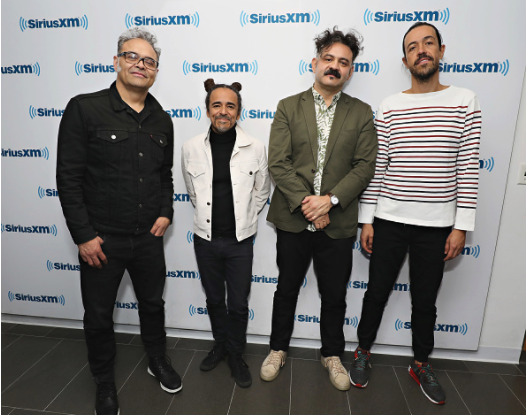Café Tacvba has a new album called Jei Beibi and about to go on tour in Mexico and the U.S. and even though they don’t like to get involved in politics, they can’t help listening to the struggles that both Mexicans and Hispanics in the U.S are facing.
“If you live in a country like this or with a neighbor like the one we have, you can’t be not taking care of what’s happening,” says Emmanuel del Real, the band’s keyboardist to NPR. “You can’t not say something about it.”
Their music incorporates rock as well as a fusion or electronic music with traditional Mexican styles like cumbias, rancheras, guapangos, and much more. Quique Rangel who wrote “Futuro” or “Future” used high-pitch whine sounds that convey the feeling of being worried about the future and the inability to do anything about it. “It’s about here and now is what you have to think and be aware,” explains Rangel. “Everything else doesn’t matter. The future is today.”
This is the first new album in five years for the Mexican band and all four members wrote songs. “We are aware of the pressure people want to put in our work,” says Rangel. “But we try not to think too much in that. We have to be the first and last listeners that have to be satisfied, and our goal’s accomplished.”
We’ve seen Café Tacuba members, Enrique Rangel, Emmanuel del Real, Rubén Isaac Albarrán Ortega, and Joselo Rangel grow up on stage since they’ve been playing for 20 years. Now they are starting to gray, have kids and families of their own, which is something that changes you.
“Everybody keeps telling you, ‘You haven’t experienced nothing until you are a father,’ and you say, ‘Yeah, whatever,’ ” del Real says. “And then when you have your child, you say ‘Oh, Jesus’… I realized that you’re gonna learn a new way [to] love somebody, a new form of loving.”
They are super excited to be touring this summer and to come to the U.S. “The four of us are not ‘bad hombres,’ ” Rangel says with a laugh. “I think we want to give to the people from Mexico and from other countries in Latin America — to bring them comfort and hope.”
